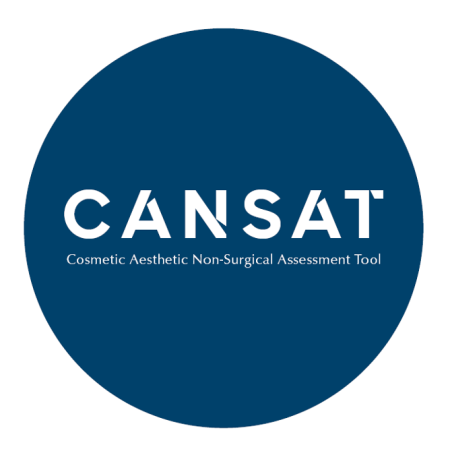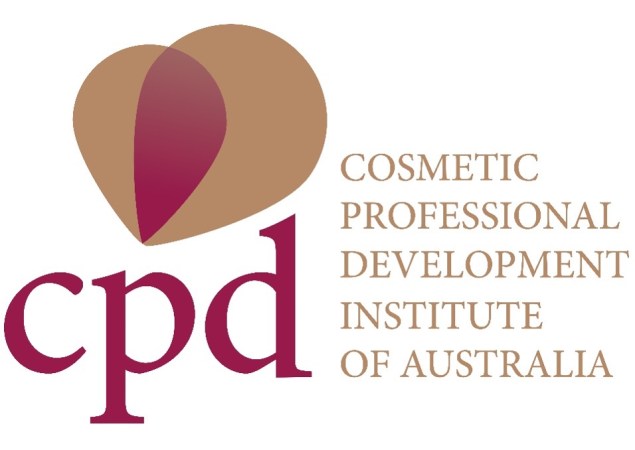The results from the CANSAT tool can support clinicians to discern patients’ suitability for treatment and identify red flags that can lead to unsatisfactory patient expectations.
The Medical Board of Australia recently recommended that individuals performing cosmetic or surgical procedures should assess a client’s motivations and expectations prior to treatment and refer them for psychological evaluation where there are indications that the client may not be suited to the procedure. Despite these recommendations, there is a lack of validated screening tools available to aid clinicians in identifying unsuitable clients.
In a team-up to address these gaps, CPD Insititute and Swinburne University alongside its team of lead researchers have designed a screening tool for cosmetic clinicians and physicians to utilise in the best interest of patient wellbeing.
We spoke to CPD Institute to learn more about the Cosmetic Aesthetic Non-Surgical Assessment Tool (CANSAT).

Tell us a bit more about the CANSAT?
Research indicates that people who seek cosmetic treatment while experiencing psychological distress, or relationship difficulties, are less satisfied with their treatment outcomes and have unrealistic expectations of the procedure.
Therefore, it is important that clinicians working in the cosmetic industry assess psychological factors which may affect treatment outcomes, and discuss with the client reasonable expectations for treatment, or other options they can undertake to achieve their desired results.
The CANSAT tool is a psychological assessment tool that is designed for practitioner use and can support clinicians to discern patients’ suitability for treatment and identify red flags that can lead to unsatisfactory patient expectations and, in some cases, complaints with legal implications.
The CANSAT tool is designed to reduce the risks for both the clinician and the patient by prompting practitioners to develop a comprehensive treatment plan to ensure healthy and positive outcomes for all parties.
CANSAT is a screening tool to assist clinicians in assessing a variety of psychological factors which have been found to predict unrealistic expectations for treatment and lowered satisfaction with cosmetic treatment outcomes.
CANSAT is an assessment tool specifically designed for the practitioner providing non-surgical cosmetic procedures.
The aim of the CANSAT tool is to determine a patient’s suitability for cosmetic treatment by:
- Examining levels of psychological distress.
- Understanding the motivations an individual has for seeking cosmetic treatment.
- Exploring how these motivations relate to satisfaction with previous treatments, and;
- Examining expectations for upcoming treatments.
- Promoting patient safety.
- Identifies the importance of an appropriate referral.
- Acts as a double assessment/screening measure
- Safeguards your practice and your clients.
What led to the decision to make the CANSAT tool?
In 2017 the Medical Board of Australia made recommendations in relation to pre-screening and patient management in both cosmetic surgery and non-surgical aesthetic practice. Reference to a psychological assessment was made, however there was no such assessment available at the time to support these recommendations to our knowledge.
Nicky Tzimas, Founder & CEO of CPD Institute of Australia initiated the project and interest in developing such an assessment to support both patients seeking such treatments and clinicians who will be preforming these treatments. With a background in mental health, Nicky Tzimas’ passion has always been patient advocacy and safety.
Informed consent has been a driving motivation for patient care and treatment delivery in her practices and the foundations of all the courses that have been developed and taught at CPD Institute of Australia.

Nicky Tzimas met with Dr Simone Buzwell from Swinburne University in late 2017 and collaborated to support Nicky’s passion for the development of such as assessment tool. The idea for this research and development was initiated by Nicky Tzimas and together with Dr Simone Buzwell (Head of Psychology of Swinburn University), we led the research. The studies conducted and funded by CPD Institute allowed for the CANSAT tool to be developed and trialled, making it a first evidence-based psychological assessment tool to assist clinicians identify patients with potential BDD and dysmorphic traits.
Safe and ethical practice is the driving ethos of Nicky Tzimas at CPD Institute of Australia, and we are excited that this tool can allow an additional level of assessment and care to ensure patient safety and care.

Who can use this tool in their practice?
At this stage, this tool will be accessible to all AHPRA registered practitioners.
In your own personal opinion, what makes an exceptional initial patient assessment?
In the non-surgical aesthetic industry, whereby nurses collaborate with doctors to deliver treatments and care, an exceptional initial patient assessment is one that requires more than a 2-5 min consultation. A standard assessment requires a minimum of 30 minutes whereby a comprehensive consultation/investigation is conducted in collaboration with a medical practitioner. It includes the development of a treatment plan and a referral process where necessary. A comprehensive assessment includes a combination of: observation of a patient, physical assessment, attaining a medical and clinical history, understanding patients’ motivation for treatment and what their ‘why’ is.
An exceptional initial patient assessment must also encompass the clinician/practitioner asking themselves why they are choosing to proceed or not proceed with a with a treatment. This I believe, is an example of what an exceptional, ethical and best practice delivery of care entails.
The emotional domain of a patient is sometimes an overlooked area of care in aesthetic practice historically, causing an oversight of intrinsic and more so extrinsic motivators to patient treatment choices.
An exceptional initial assessment is one that is done comprehensively every time you meet the patient, not just upon the initial meeting. Repetition leads to success!
For more information or to access the CANSAT, visit the website here.
Read SPA+CLINIC’s latest issue here:
There are 5 ways you can catch up with SPA+CLINIC
- Our quarterly print magazine, delivered to your door. Subscribe here.
- Our website, which is updated daily with its own completely unique content and breaking news.
- Our weekly newsletter – free to your inbox! Subscribe here.
- Our digital magazine – click here to view previous issues.
- Our social media – see daily updates on our Instagram, Facebook & Linkedin




